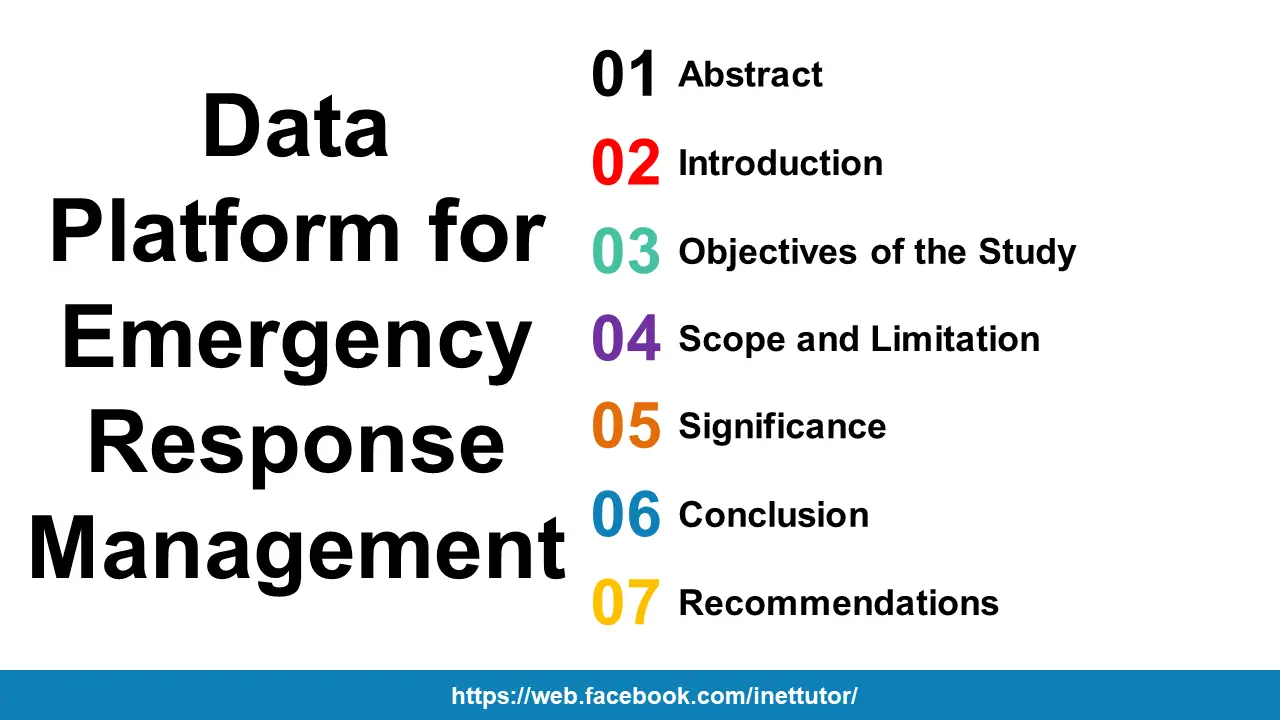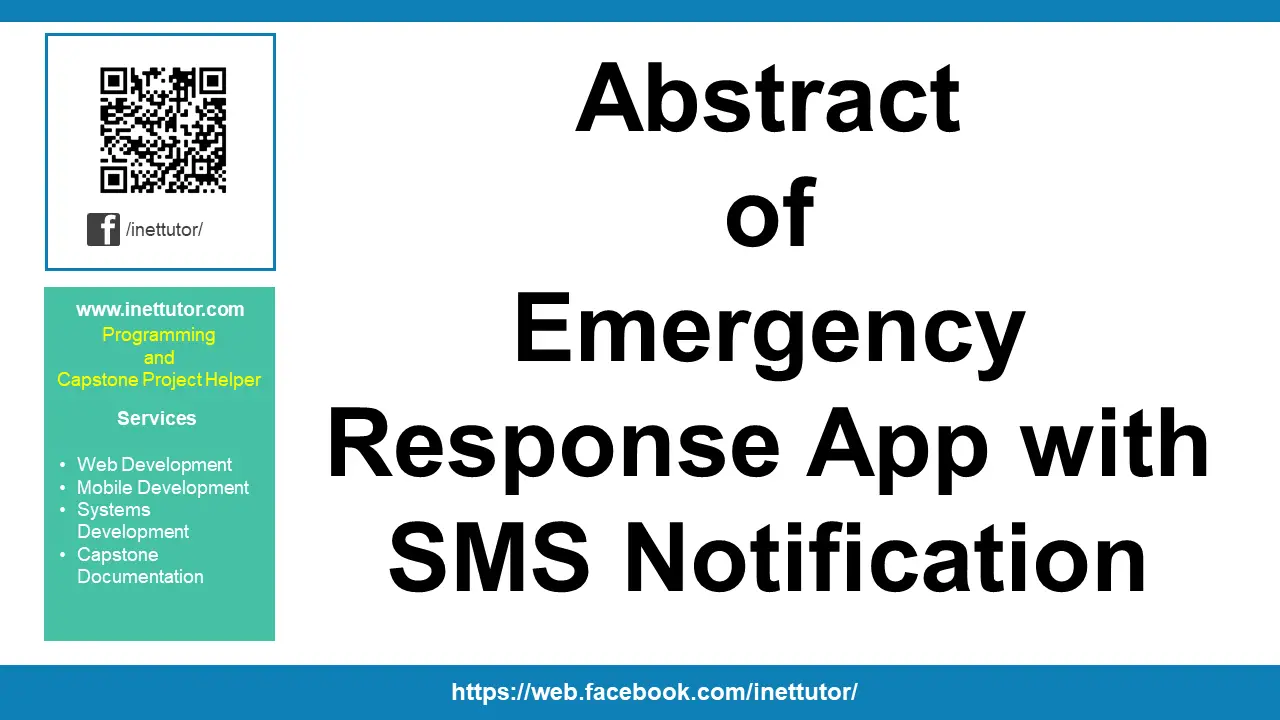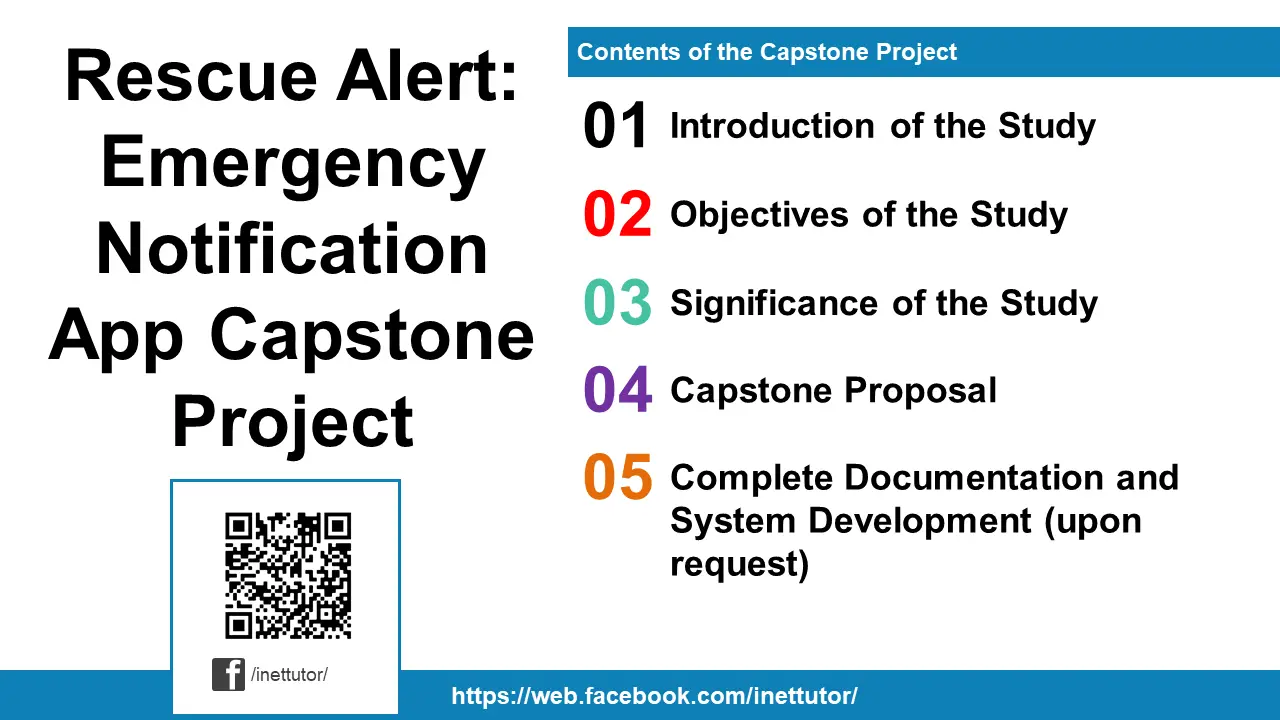Data Platform for Emergency Response Management
Abstract
Table of Contents
In today’s technologically advanced world, everything seems possible. The usage of innovative technologies has paved the way for the improvement of every industry and institution. There is a significant increase in operational efficiency and rendered services.
Accidents, tragedies, and disasters are bound to happen at times and put people in emergencies. Public safety agencies and emergency responders were whom people rely on during emergencies. The researchers conducted the study to assess the methods available and used during emergencies. The researchers have found out that people still use and rely on emergency call systems which made public safety agencies and emergency responders rely on limited data they can use in responding to emergencies.
The capstone project, “Data Platform for Emergency Response Management (DPERM)” is a centralized platform for data sharing that expands the source of datasets required during emergencies. Availability and accessibility of data will enable public safety agencies and emergency responders to manage and respond to emergencies effectively and efficiently.
The developed system will go through testing, checking, and evaluation phases. The panel of IT experts will evaluate the system and the researchers will make revisions base on the result of the evaluation. The researchers will gather a sample size of public safety agency staff, emergency responders, and other target end-users to serve as respondents of the study.
With the implementation of the system, public safety agencies and emergency responders can respond on time and save numerous lives. The system will expand the capability and efficiency of public safety agencies and emergency respondents to protect and save people during emergencies.

Introduction
The capstone project, “Data Platform for Emergency Response Management (DPERM)” is designed to allow seamless sharing of data to a centralized data platform used for emergency purposes. Public safety agencies and emergency responders can access device-based location data, health profiles, crash data, and other life-saving data that is essential to easily and efficiently respond to emergencies at all costs.
Accidents, tragedies, and disasters are bound to happen at times and put people in emergencies. Conventionally, during emergencies, people tend to rely on emergency call systems. This system of emergency respondents has been used for a long time by emergency responders. However, emergency call systems are not highly ideal and reliable in responding to all sorts of emergencies. Emergency responders will be forced to rely on limited data provided verbally by the caller. Emergency call systems often lead to delays in dispatch and arrival on the emergency scene. The said emergency system is prone to a lot of barriers and challenges such as the caller is unable to speak, the caller doesn’t know their exact location, and other possible scenarios that limit the capabilities of the caller to efficiently relay data. Thus, the researchers have seen an intensified need for the development of systems used for emergency response management.
Proposed Solution

In conjunction with the aforementioned concerns, the researchers proposed the development of the Data Platform for Emergency Response Management (DPERM). The system is designed to be a centralized platform for data-sharing used to respond to emergencies and save lives. The said project will allow different companies that emerge and utilize the digital platforms in their operation to share data from their device and sensors. Availability and accessibility of data will enable public safety agencies and emergency responders to manage and respond to emergencies effectively and efficiently.
Objectives of the Study
General Objective – The general objective of the project is to design, develop, and implement a data platform for emergency response management that expands the capability and efficiency of public safety agencies and emergency respondents to protect and save people during emergencies.
The researchers specifically aim the following objectives:
- To design a data platform that eases up and streamlines data-sharing for emergency use.
- To share uniform complex datasets to emergency responders for fast and more effective emergency response.
- To develop an emergency response data platform that allows emergency responders to arrive on the scene faster and save lives.
- To present an available and accessible dataset and real-time information to respond to emergencies.
- To introduce a more advanced emergency system that would improve public safety.
Scope of the Study
This study only covers the development process of the Data Platform for Emergency Response Management (DPERM). The platform is limited only to data-sharing that is useful during emergency response. The said project will allow different companies that emerge and utilize the digital platform in their operation to share data from their device and sensors.

Significance of the Study
The success of the project is significant to the following:
Public Safety Agencies. The success of the project will expand and significantly improve their operation in responding to emergencies. They can better protect and serve the community during emergencies.
Emergency First Responder. The system will help them to arrive on time on the scene and provide proper care to the people. The system will enhance the service they provide during emergencies.
Researchers. Their experience in conducting the project will enhance their knowledge and skills as researchers.
Future Researchers. The study can serve as their reference and guide in developing their version of the data platform.
Conclusion
Emergency preparedness is one of the key points to efficiently respond during emergencies. The researchers conducted the study to develop a data platform that will help in providing all sorts of datasets needed to efficiently manage and respond to emergencies. The result of the study showed that the developed data platform provides the needs and requirements of the target users and respondents. The majority of the respondents rated the system satisfactorily.
Hence, the researchers concluded that the data platform is an effective tool to address the need for an accurate and adequate volume of data needed to respond to emergency scenes. The system will allow public safety agencies and emergency responders can respond on time and save numerous lives. The system will expand the capability and efficiency of public safety agencies and emergency respondents to protect and save people during emergencies.
Recommendations
The researchers highly recommend the implementation of the data platform for the emergency response management system. The developed project is highly recommended for its efficiency and reliability that can be rendered to the target end-users. The researchers of the study highlight that the target end-users should familiarize the system to correctly and properly utilize it.
The following are the specific recommendations of the researchers:
- The researchers recommend that public safety agencies and emergency responders should adapt the use of the data platform to have a reliable source of information during emergencies.
- The implementation of the system will present available and accessible datasets and real-time information to respond to emergencies.
- The system is highly reliable, accurate, and accessible which will increase the possibility of saving lives.
You may visit our Facebook page for more information, inquiries, and comments.
Hire our team to do the project.

